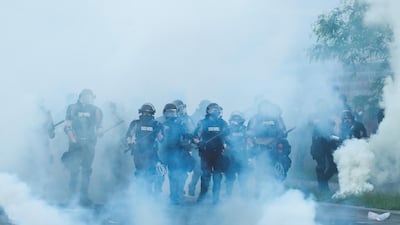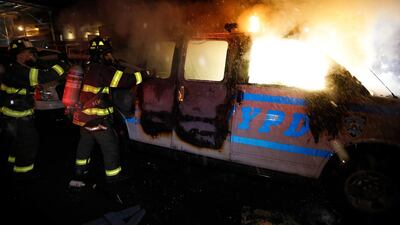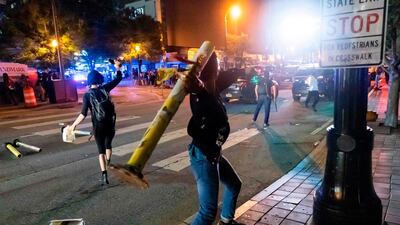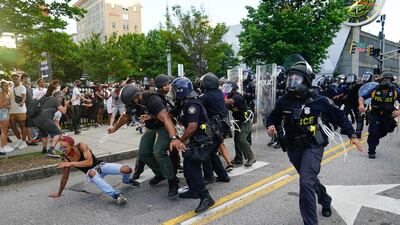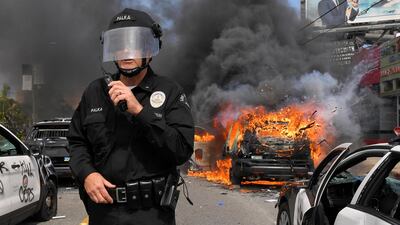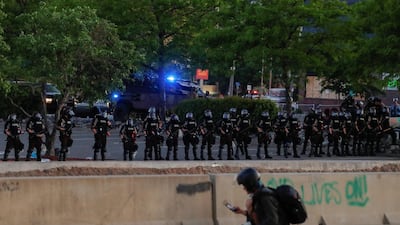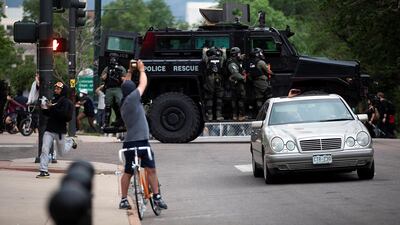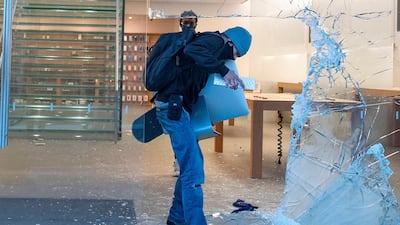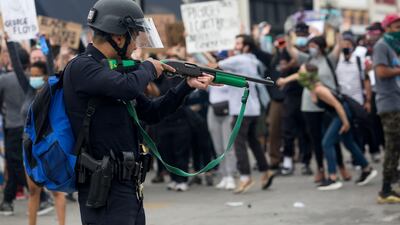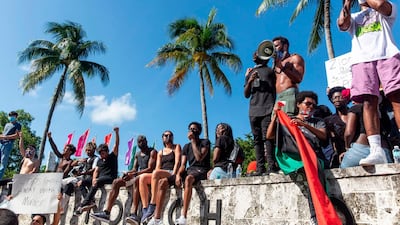Police in riot gear clashed with protesters who defied a curfew in Minneapolis on Saturday, firing tear gas and stun grenades to keep them away from a police station.
Police, assisted by National Guard soldiers, had held back from confronting demonstrators out of concern it would aggravate the crisis and because they were initially low in number.
Several American cities have been gripped by several days of violent protests after the death of an unarmed black man during an arrest in Minneapolis on Monday.
George Floyd was handcuffed and died after a police officer knelt on his neck for nearly nine minutes.
Los Angeles, Louisville, Philadelphia and Atlanta were among the cities that announced curfews on Saturday in a bid to stem the anti-police protests.
On Saturday, US President Donald Trump issued a warning to protesters that his government would bring the demonstrations to an end.
He blamed the extreme left as thousands of people began to appear on the streets of major US cities and threatened further unrest.
"We cannot and must not allow a small group of criminals and vandals to wreck our cities and lay waste to our communities," Mr Trump said after another night of widespread looting and arson in Minneapolis.
"My administration will stop mob violence. And we'll stop it cold."
He said the rioters were dishonoured the memory of George Floyd, who has become the latest symbol of police brutality against black people.
"The violence and vandalism is being led by Antifa and other radical left-wing groups," Mr Trump said, referring to the loose-knit militant anti-fascist network.
Minnesota Governor Tim Walz called up more National Guard troops on Saturday and warned they would "decimate" rioters after Friday night's violence.
The killing of Floyd has led to one of the country's worst periods of civil unrest in years, with police cars and properties set alight and destroyed in cities such as New York City, Dallas, Atlanta, Los Angeles.
Protesters shouted and chanted for hours outside the White House on Friday, as Mr Trump sat inside facing the most serious spate of civil unrest of his presidency, in the middle of the coronavirus pandemic.
Mr Walz said he was mobilising the state's entire 13,000-strong National Guard to deal with rioters who have looted shops and set fires in the Minneapolis-St Paul area.
Thousands of people who defied the first night-time curfew overwhelmed police and troops.
The protests were expected to continue into next week even after the Minneapolis police officer accused of Floyd's death was arrested and charged with third-degree murder on Friday.
Floyd's family and many protesters demanded more arrests and tougher murder charges.
Chanting Floyd's repeated words to the police – "I can't breathe" – protesters across the country said it was the latest example of systemic police brutality against African Americans.




